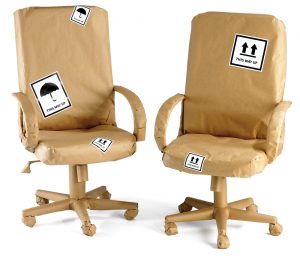It’s surprising how long making a decision can take. So it’s not surprising really that business owners can get themselves all knotted up over something like which document storage company to go with. After all, if we do say so ourselves, it’s a pretty important decision. There’s valuable data at stake; you don’t want to be handing it over to some bloke with a warehouse recommended by your mate in the pub.
That’s why we’ve given you a few things to think about when choosing a document storage company, to help you avoid the cowboys and make a decision you’ll be happy with.
Your document storage company should be able to help you create a brief
Beyond knowing that you want someone to please, please make all the paperwork go away, do you actually know exactly what it is that you need? If the answer is no, you’re not alone. Why should you understand the ins and outs of document storage? You’re an expert at what you do. That’s why a good document storage company should be able to ask you the right questions to help you work out a thorough brief. Like how often you’ll need to access your document, whether they’ll need storing long or short term, or whether you actually need paper records at all. It could be that you’d be better off with a scanning and secure data destruction package, to create easily-accessible, mega space saving digital records instead.
They should have top notch security
This may sound a bit obvious, but the document storage company you choose should be able to guarantee the safety of your valuable documents. And not just by storing them in a facility that’s alarmed, protected and monitored. They also need to be thinking about the environmental conditions (we’ve said it before, and we’ll say it again – paper doesn’t like the damp, mould does), not to mention rodents (who have a surprising penchant for paper archives). Oh, and they need a good barcoding system, like we have, so your files don’t simply disappear amongst the many thousands of others they’re storing.
They should be certified to industry standards
It’s not enough for your document storage company to say they’re good at what they do. They really ought to be able to prove it. Here are some of the reassurances we can offer:
- ISO 9001:2015 certification, which we’ve held since 2015 and we were one of the first in the industry to achieve it!
- Information Commissioners Office (ICO) registration, with our company details published on the open register. Our certificate number is Z6020186.
- An information governance framework of robust policies and procedures, audited annually by a certified data protection. All our policies and procedures comply with our responsibilities as a Data Controller under the Data Protection Act (2018), Privacy Electronic Communication Regulations (PECR) and UK GDPR.
- A company data protection training policy, including the provision of regular training for all Scan Film or Store employees, putting our client’s personal data at the forefront of everything we do
- BS7858 compliance, which means we’re all security vetted and have had our DBS checks too.
- A fully documented business continuity plan, which means we can keep working and protecting your documents in the case of a catastrophic event.
- A comprehensive Health & Safety policy, including regularly updated risk assessments, PAT tests and electrical testing across all our premises.
They should offer you a bespoke service
No two companies are the same. Well ok, there are similarities. But still – whether you’re a school or a hospital or a firm of architects or an Aerospace Engineering business, your document storage needs are going to be just that little bit different to the next school or hospital or firm of architects or Aerospace Engineering business. A standard ‘one size fits all’ approach isn’t going to be as efficient as a bespoke solution, neither is it going to help you make the most of your budget. That’s why we meet with all our clients and even do a sample job when there’s scanning involved, so you can work out exactly what you need and pay only for that.
So for goodness sake, don’t stick a pin in the Yellow Pages or go for the cheapest option on the market. There’s nothing financially prudent about sticking vital business data in the care of anyone you don’t completely trust.
Want to give us the once over and see whether we meet your standards? contact us here and one of the team will be happy to help, FREE of charge!
 Spring cleaning – it’s so last year. After working from home or a deserted office space and enjoying a hedonistic summer of barbecues (we wish!) , day drinking (just us??) and getting sunburned(really), it’s time to get back to reality. And nothing helps focus the mind like a good old spring… sorry, autumn clear out.
Spring cleaning – it’s so last year. After working from home or a deserted office space and enjoying a hedonistic summer of barbecues (we wish!) , day drinking (just us??) and getting sunburned(really), it’s time to get back to reality. And nothing helps focus the mind like a good old spring… sorry, autumn clear out. There are many things in life you’d never attempt to do yourself. Like rewire your house. Or clean the outside of a 25th floor window. Or catch an escaped anaconda. Unless you were an electrician, an aerial window cleaner or zoo keeper, obviously. But when it comes to document storage… well, that’s a different story.
There are many things in life you’d never attempt to do yourself. Like rewire your house. Or clean the outside of a 25th floor window. Or catch an escaped anaconda. Unless you were an electrician, an aerial window cleaner or zoo keeper, obviously. But when it comes to document storage… well, that’s a different story. The world has more information in it than ever before. A lot of it is fairly mundane – train timetables and Pink Floyd lyrics and what Sarah had for lunch on Thursday (thanks so much, Instagram). But there is also a lot of highly sensitive information, ranging from individuals’ address details through to launch codes that could destroy the planet.
The world has more information in it than ever before. A lot of it is fairly mundane – train timetables and Pink Floyd lyrics and what Sarah had for lunch on Thursday (thanks so much, Instagram). But there is also a lot of highly sensitive information, ranging from individuals’ address details through to launch codes that could destroy the planet. Where do you stand on office moves? Does the thought fill you with excitement and give you an excuse to daydream about the fun new breakout space you’re going to create and the inspirational slogans you could paint artily on the exposed brick walls?
Where do you stand on office moves? Does the thought fill you with excitement and give you an excuse to daydream about the fun new breakout space you’re going to create and the inspirational slogans you could paint artily on the exposed brick walls?  We don’t like to play favourites but we do seem to have attracted a lot of clients from the
We don’t like to play favourites but we do seem to have attracted a lot of clients from the  Document storage and scanning is our bread and butter, so it’s sometimes easy to forget that not everyone knows the ins and outs of it like we do. From technical jargon to the processes, we’ve got so used to it being second nature, we sometimes forget that not everything is quite as obvious to the rest of the world!
Document storage and scanning is our bread and butter, so it’s sometimes easy to forget that not everyone knows the ins and outs of it like we do. From technical jargon to the processes, we’ve got so used to it being second nature, we sometimes forget that not everything is quite as obvious to the rest of the world! Hands up who wants to be rich in 2019? Sorry folks, we don’t have any magic bullets nor the winning lottery numbers. No, don’t leave yet! Rather than telling you how you can get rich, we thought we’d share some tips that will help you save money. Which is pretty much the same thing, right?
Hands up who wants to be rich in 2019? Sorry folks, we don’t have any magic bullets nor the winning lottery numbers. No, don’t leave yet! Rather than telling you how you can get rich, we thought we’d share some tips that will help you save money. Which is pretty much the same thing, right? Hi there! How are you today? No, don’t just say “fine” without thinking. How are you really? Might you be just a little bit stressed? Or even a lot stressed?
Hi there! How are you today? No, don’t just say “fine” without thinking. How are you really? Might you be just a little bit stressed? Or even a lot stressed? Do you know what the date is on Sunday? No, don’t start scrabbling for your calendar app, we’ll tell you – it’s the 18th. Which happens to mark two months until GDPR kicks in. Yikes! How did that come about so fast??
Do you know what the date is on Sunday? No, don’t start scrabbling for your calendar app, we’ll tell you – it’s the 18th. Which happens to mark two months until GDPR kicks in. Yikes! How did that come about so fast??






